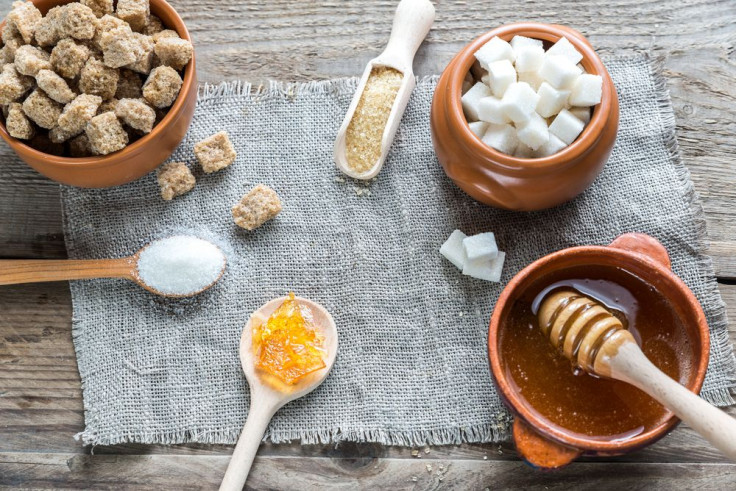Simple Sugars 101: Products With Fructose Inspire Overeating Because They Are Less Rewarding Than Glucose

Fructose is a simple carbohydrate that is naturally found in honey and fruits. Commonly, its industrial cousin is added to sugary drinks and packaged meals. A new study from the University of Basel suggests a reason why so many people find it difficult to curb their appetite for products containing this ingredient.
Fructose not only inspires a lower level of satiety than glucose, another simple sugar, it also stimulates the reward system in the brain to a lesser extent, the researchers say.
Simple Sugars
Your taste buds may not distinguish between the three simple sugars — fructose, glucose, and sucrose — but your body does. Though they provide the same amount of energy per gram, each sugar is processed by the body in a different way. Once consumed, for example, sucrose divides into fructose and glucose particles, and then metabolism continues from there.
Glucose is very easy for your body to break down and use. It circulates in your blood, and, when concentration levels become too high, insulin is secreted to facilitate the entry of glucose into cells, where it serves as energy. Nearly all the cells in your body, from those in your brain to those in your tiny toe, use glucose. Most is burned up, then, immediately after you eat it.
By comparison, fructose travels a more arduous path through your body. Instead of quick absorption, your liver is burdened with metabolizing it. Fat forms and is stored there and in muscle tissues, beside.
The simplest illustration of difference between the two sugars is this: When you eat 120 calories of glucose, less than one calorie is stored as fat, according to Dr. Mercola. However, eat 120 calories of fructose and 40 calories will be stored as fat.
To investigate the effects of fructose on the body, the researchers of the current study used a combination of pharmacological methods and brain scan technologies.
Comparison Test
The researchers began by giving 12 healthy young men either fructose, glucose, or a placebo through a feeding tube. Next, the researchers drew blood samples to measure the levels of participant’s satiety hormones. Participants also answered questions about how full they felt, while an MRI monitored their at-rest brain activity.
Analyzing the results, fructose clearly appears to be the inferior sugar. Compared to glucose, it was less effective at both arousing feelings of satiety and stimulating the brain’s reward system.
The story told by the MRI scans reveal the different strength of activity inspired by fructose and glucose in neural networks within the limbic system — the regions of the brain regulating emotions and impulses. Glucose strongly stimulated these networks, fructose did not. Fructose also barely increased the levels of satiety hormones in the blood compared to glucose. As expected, the participant's reports of a subjective feeling of satiety also tended to be lower with fructose.
Increasingly, researchers are finding evidence to support the idea that manufactured fructose contributes to poor health in the form of obesity, diabetes, fatty liver disease, and gout. This latest study serves as another brick in that wall.
Source: Wölnerhanssen BK, Meyer-Gerspach AC, Schmidt A, et al. Dissociable Behavioral, Physiological and Neural Effects of Acute Glucose and Fructose Ingestion: A Pilot Study. Plos One. 2015.



























